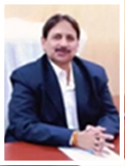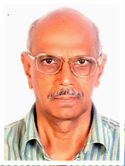
| S.No. | Session /Topic |
| Status and Trends | |
| 1 | Smart Urban Gardening and Lessons Learnt from Covid: Food Security | Supply Chain Opportunities |
| 2 | Academic & Research Trends in Urban Gardening |
| 3 | Urban Farming:Latest Developments, Challenges and Opportunities |
| 4 | Approaches for Holistic Growth of Vertical Farming |
| 5 | Urban farming- A Case Study fromNDMC |
| 6 | New Frontiers in Urban Gardening and Landscaping |
| Technical Issues – Horti-Engineering | |
| 7 | Hydroponic Seedling Propagation |
| 8 | Hydroponics for Smart Urban Gardening |
| 9 | Tissue Culture – A backup industry for Smart Urban Gardening |
| 10 | Plant Nutrients and Food Quality in Vertical Farming |
| 11 | Technical Frontiersin LED Lighting |
| 12 | Indoor Grow Lights – Understanding Technicalities |
| 13 | Data-driven Controlled Environment Agriculture: Planning &Designing |
| 14 | Irrigation and Fertigation Aspects in Smart Urban Farming |
| 15 | Available technologies – LED lighting, sensors, AI |
| 16 | Improved resource-use efficiency in Urban and Vertical Farming |
| 17 | Substrates and Media for Smart Urban Gardening |
| Ecology and Environmental Issues | |
| 18 | Biodiversity for Smart Urban Farming |
| 19 | Pollinators and Beneficials for Smart Urban Farming |
| 20 | Health and Nutritional Aspects of Urban Gardening |
| 21 | GlobalGAP and Sustainability Issues in Urban Farming |
| Case Studies in Smart Urban Gardening and Vertical Farming | |
| 22 | Smart Cities / Architecture / Urban Design – A Case Study |
| 23 | From Traditional Farmer to Vertical Farmer – A Case Study |
| 24 | Mapping New Crops for Urban Mass Production – A Case Study |
| 25 | Emerging Dynamics in Roof Top Farming – A Case Study of Neo-Citizens |
| Business, Economic and Social Aspects | |
| 26 | Industries Association: The Science & Technology of Urban Farming |
| 27 | Consumer Business Models in Urban Gardening: Scales beyond Metros |
| 28 | Produce Trends & Marketing Opportunities for Indoor Growers |
| 29 | Retail Insights: Understanding the Drivers Behind Consumer Demand |
| 30 | Financial Models: Scaling up Investments inUrban Gardening |
| 31 | Emerging Scopes in Minor Infrastructures and Paraphernalia |
| 32 | Grocers & Growers -Growing Profitable Relationships |
| 33 | Urban Farming -Working Economics & Business Potentials |
| 34 | Human Resources especially Women In Urban Farming |
| 35 | Urban Farming - Hobbies, Trends and Services |

SPEAKERS

Dr. P. K. Tripathi, Deputy Director General Horticulture, CPWD, having experience of more than 28 Years, in the field of Horticulture and Ornamental Gardening ranging over various fields of Horticulture. He has published many research papers and articles in the Journals and Magazines. He had also undergone International Training in the Urban Greenery and Park Administration at Osaka, Japan, conducted by JICA. He is the members of many Professional Societies.The CPWD, comprises of Civil, Electrical, Architecture and Horticulture wings, finds its relation with the built infrastructure. The Horticulture Wings of CPWD was established in 1st April 1912 headed by Shri. R. H. Loke (British origin) as Horticulture Superintendent now gone up to the level of DDG, Horticulture, who is the incharge of all the Horticulture activities carried out in the VVIP areas, office premises and residential colonies across the country. With the increasing urbanization, the demand for fruits, vegetables, grasses, foliage, flowering and medicinal potted plants shall increase manifold. We need to gearup for the opportunity by adopting modern scientific production systems to deliver quality plants at reasonable rates. The need of the hour is to diversify and create newer and attractive options of plants to make the Horticulture and Landscaping industry even more attractive.

Prof. C. R. Babu, Professor C.R. Babu served as a faculty member of the Department of Botany, University of Delhi for more than 35 years. He was the founder Director of the Centre for Environmental Management of Degraded Ecosystems (CEMDE) and School of Environmental Studies at the University of Delhi, and brought into existence the Department of Environmental Biology (now designated as Department of Environmental Studies) at the University of Delhi. He was the Pro-Vice-Chancellor of the University of Delhi from 2000 to 2005. Presently he is Professor Emeritus at the University of Delhi and Distinguished Professor of the Environment and Ecology at the School of Human Ecology, Ambedkar University Delhi. He is the Project Director of the Centre of Excellence Programme of the Ministry of Environment & Forests & Climate Change, Government of India at CEMDE (University of Delhi) and Project Incharge of the Biodiversity Parks Programme of Delhi Development Authority (DDA) at the University of Delhi.
Professor Babu has been working in the areas of Conservation Biology, Biodiversity, Ecological Restoration, Ecosystem Dynamics and Functions, and Systematics for more than 40 years. Forty Four students secured their Ph.D.s from the University of Delhi under his guidance. He along with his students published about 227 research papers in national and international journals. He is a Fellow of the Indian Academy of Sciences (Bangalore) and Chairman/Member of several National and International Committees on Environment and Ecology.
He is the recipient of the three National Awards:
(i) Indira Gandhi Paryavaran Puraskar of Ministry of Environment and Forests, Government of India for the year 2009.
(ii) VASVIK Award 2005 for Environmental Science and Technology.
(iii) Narain Dutt Award 2008 for Conservation of Nature.

Dr. Praveen Singh, is an agriculture professional with 18+ years of experience in different fields of agriculture sector. Started his career as a consultant to European Commission project and followed by British High Commission project in the field of Rural Development. From Rural development, he diversified his professional journey and join a corporate i.e. Tata Chemicals Ltd. He served at different roles and locations for ensuring desired outcome in different projects/responsibilities. He was one of the founder members of customized fertilizer team at Tata chemicals and contributed significantly for the development of customized fertilizer, branded compost and outsourced farm services. His professional journey also includes exposure to Africa, where he was responsible for Corporate Farming and leased 25,000 ha of land from Ethiopian Government. He also worked with National Horticulture Research and Development Foundation as Joint Director and managed the seed business & Development activities. Past 8-10 years, he has been significantly contributing for the development of the Hydroponic growing system in India. He initiated and delivered Hydroponic projects at DS Group and Dabur Group. He is a proud Khetibadiwala and puts his best effort for developing Hydroponic growing system as a successful growing system for meeting needs of Urban Population in India. He is associated with >1000 hydroponic practitioners and sharing his knowledge for the development of Hydroponic sector in India. He is also consulting hydroponic projects in India, Africa and Bangladesh.
